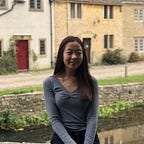What It’s Actually Like To Be a Korean American Journalist in Korea
Grace Moon, 23, had never lived in Korea until she moved to Seoul in 2019. The New York University alumna was pursuing a postgraduate fellowship, where she produced radio programs for North Korean audiences. But as the COVID-19 pandemic started spreading in Asia, Moon’s career shifted.
She began immersing herself into the art of freelancing, reporting on South Korea’s success in containing the virus during a time when other countries were struggling to flatten the curve. From there, Moon branched off into writing stories about the virus’ impact on South Korean society, with topics ranging from robot baristas to migrant workers’ rights. While she copyedited at the Korea JoongAng Daily for about a year, Moon decided to freelance on a full-time basis as of last week.
“If I’m confined to one publication, then that publication has an angle that I would have to adjust to whether it’s a politics beat or a North Korea beat,” said Moon. “But for freelancing, I feel like I’ve grown as a person because I can take on a lot of different stories for different outlets with different focuses.”
Moon hunts for ideas by reading local Korean stories or making observations during walks. When she comes across something interesting, Moon first has to consider whether it has a Western story angle due to the fact that she primarily writes for publications based in the United States and the United Kingdom.
“Obviously, because it’s for an international audience, I can’t touch on the complexities of the actual local stories because it won’t be as appealing,” said Moon. “[The editors] aren’t really interested in the nitty-gritty of everything, so I have to summarize a lot of the time.”
Compared to reporting in the US, Moon found it challenging at first to freelance as a Korean American journalist in South Korea. Because of her Asian appearance, sources tend to hold her to a higher standard in contrast to their acceptance of white correspondents. At times, sources would behave condescendingly towards Moon for being a gyopo, someone of Korean descent who has been living overseas. To be able to better understand and speak about technical subjects during interviews, Moon had to study hard to improve her already-advanced Korean skills in order to gain respect from her sources.
Another difference between reporting in the US and South Korea that Moon discovered was that Korean people disliked being interviewed. She found it difficult to get people to use their real names.
“I remember in New York, when I wanted to interview people, people raised their hands and they wanted to get quoted in the media, but Korean people are more protective of their privacy, and so they’re not as willing,” said Moon. “In domestic media, it’s very normal to use anonymous sources, so it might say Ms. Kim said this or 50-year-old Mr. Han said this, which is different from Western practices.”
One of Moon’s biggest takeaways from her time in South Korea is building strong relationships with her sources. Because the international media network in South Korea is so small, everyone — journalists and sources alike — knows each other.
“A lot of journalists just dial people and ask for a quote, but you’re definitely going to come across that person again,” said Moon. “I think it’s important to actually invest energy and time into crafting quality relationships with your sources, checking in on them and wishing them happy birthday or Happy Chuseok.”
Another challenge that Moon faced was becoming more conscious of her biases as an Asian American journalist and making sure not to impose this lens on her work about Korean society. When speaking with Korean sources, Moon tries her best to put herself in their shoes and understand their perspectives, which are entirely different from hers.
“Often I want to view social issues with that Asian American gaze, but here when it comes to race and society, it’s just totally different,” said Moon. “On the Atlanta shootings, it was really hard because it’s understandable why Koreans have a hard time empathizing with why the Korean American community is upset as Korean society is still really homogenous and racial tensions and discourses are really different.”
However, Moon has been able to connect with her Korean sources in other ways. At the end of 2019, she worked on a story for the BBC about Korean millennials being fed up with the toxic work culture and retreating to a government-funded development called Don’t Worry Village, which is located in the southwestern port city of Mokpo. There, Moon was able to immerse herself into the community and interact with sources who shared her interests and concerns.
“It was fun because a lot of them were my age and I could really empathize with the frustrations that they were going through,” said Moon. “I had two weeks to report it, so I really got to explore the actual story and dig deeper, ask myself questions, and find more sources as I went.”
Moon initially entered journalism thinking that she wanted to become a food journalist. That is not the case anymore. While living in South Korea, Moon has written about topics including injustice within the adoption industry, pushback against light sentences for sex crimes, and criticism against the government’s outdated stereotypes of women. By reporting on issues about society, Moon hopes to provide social minorities with a platform to tell their stories to the rest of the world.
